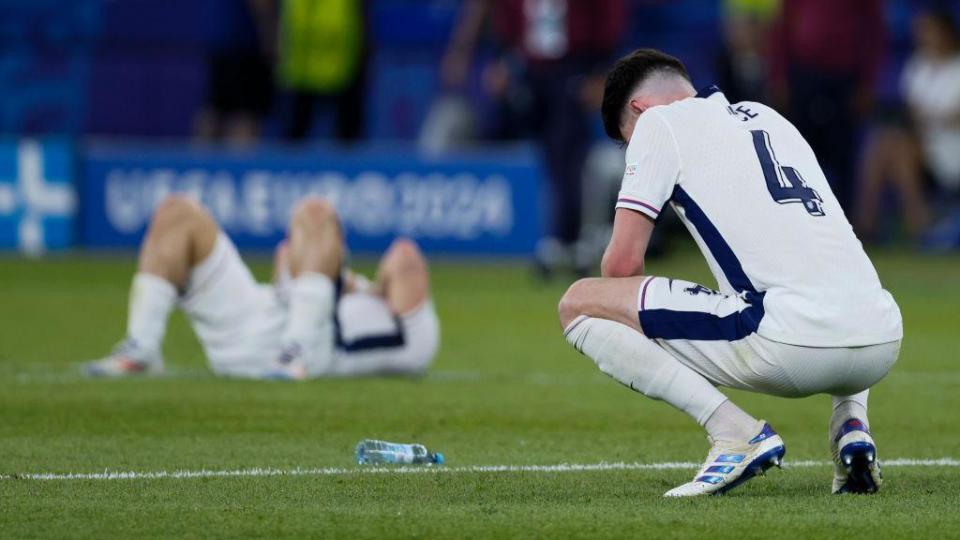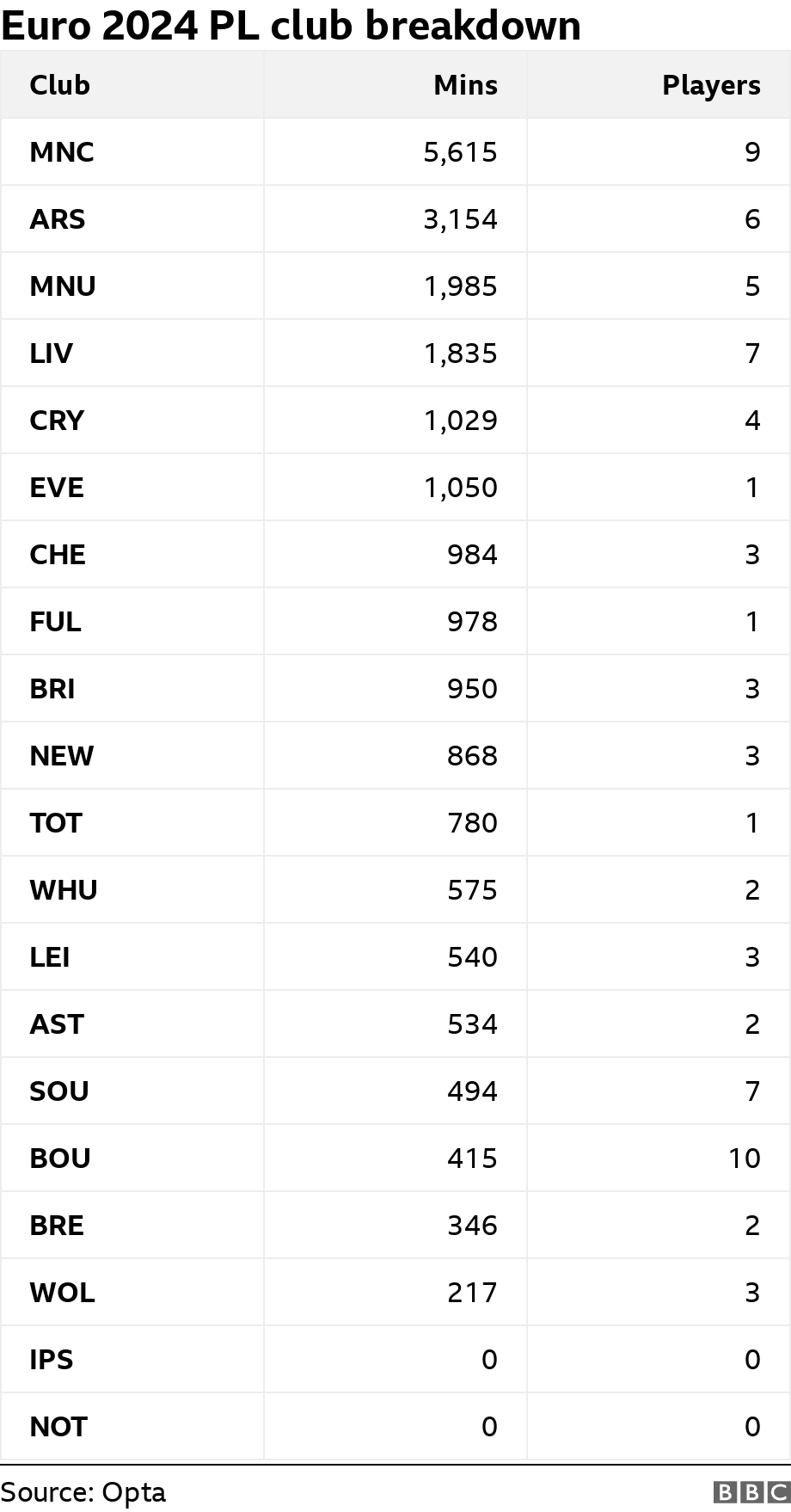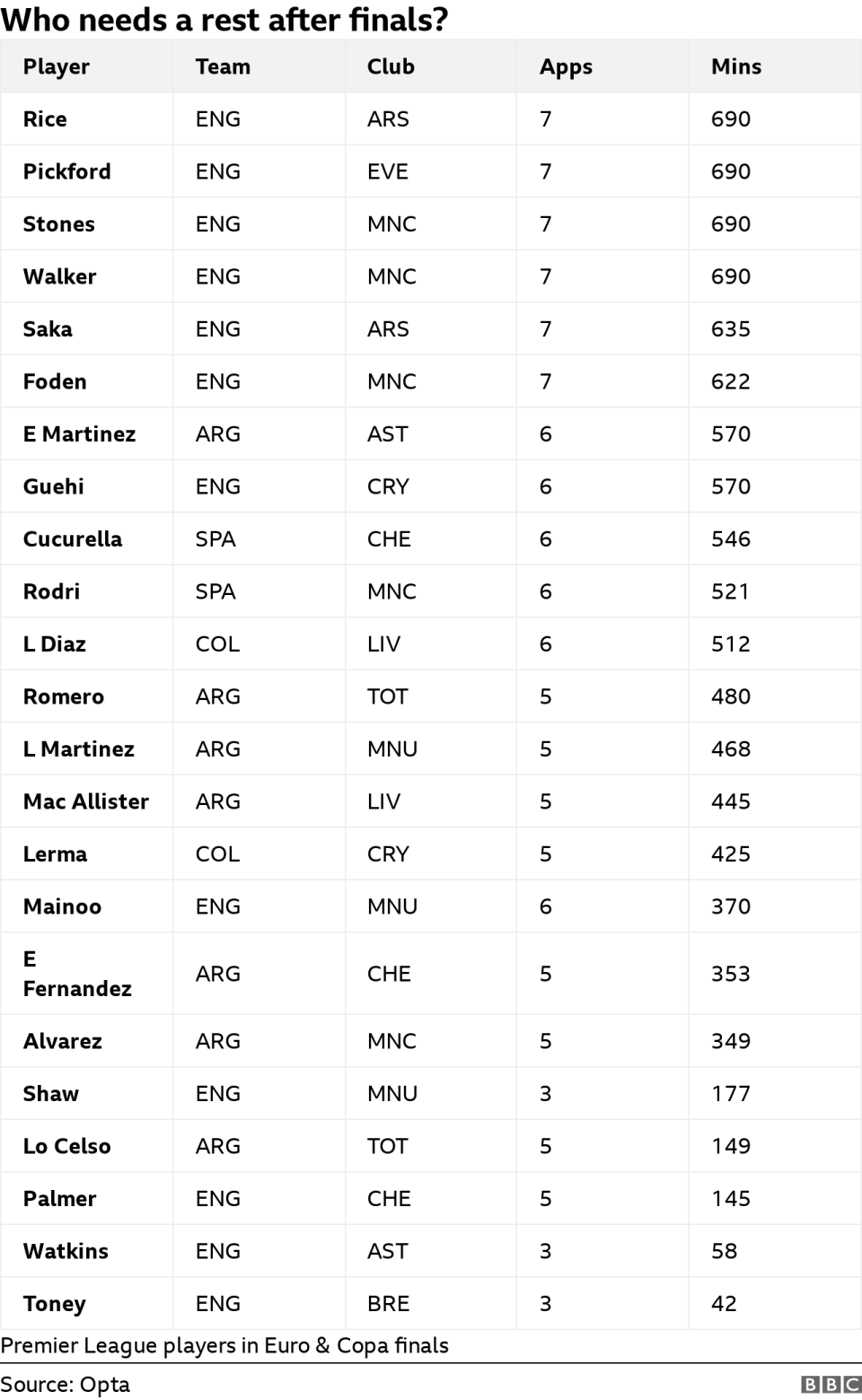
The Premier League’s Break: Balancing Intensity and Recovery
As we embrace the excitement of upcoming seasons in football, the aftermath of prominent tournaments like Euro 2024 and Copa America 2024 has left Premier League clubs bracing for the workload ahead. With the Premier League set to kick off on Friday, August 16, clubs find themselves grappling with player fatigue and the potential fallout of a rigorous football calendar.

The Exhaustive Journey for Premier League Stars
The Euro 2024 final saw both England and Spain vie for glory, leaving significant gaps in players’ availability due to their commitments on the international stage. This will obviously translate into a demanding break for many Premier League clubs, with some of their key players taking an expected three-week rest. It’s an odd paradox; while fans celebrate the thrill of international tournaments, clubs need their stars to recharge for the league campaign commencing shortly thereafter.
During the whirlwind of competition, Manchester City players accumulated the most match minutes at Euro 2024, highlighting not just talent but also the pressures of sustained performance. As competitions intensify, so does the expectation on clubs and their players to perform at peak levels amid an ever-demanding schedule. Jude Bellingham, after the final match, poignantly remarked on the profound exhaustion players face, stating, > “You know, it’s so tough these days with the crazy schedules.”

The Relentless Moore: How Will It Affect Clubs?
For clubs like Manchester City, this next year presents a staggering schedule with 79 potential fixtures. This includes five pre-season games, the Community Shield, and the whole Premier League season comprising 38 matches, plus various cup competitions. After such a taxing summer, imagine the toll on players who might still carry lingering fatigue into the new season! There’s a critical discussion to be had about the sustainability of this calendar. Just look at the case of Liverpool, traditionally known for their vigorous playing style; without sufficient recuperation, the quality could diminish.
As I produce my own lineups for fantasy leagues, it becomes evident: the focus goes beyond just the star names; it dives deep into how well these players can adapt after significant international play. The depth of a squad will likely prove crucial as managers look to rotate their personnel strategically to avoid burnout.
The Players’ Union Takes a Stand
With rising concern among players, the Professional Footballers’ Association (PFA) is not keeping quiet. Their chief executive, Maheta Molango, has voiced the need for drastic change within the current footballing structure. Molango’s assertion that the football calendar is “completely unsustainable” underlines a widespread sentiment of fatigue amongst professionals today. Clubs must then look ahead, asking—what will be the cost of an overloaded schedule?
The PFA’s push for legal action against FIFA’s handling of the calendar reflects a mounting frustration that could eventually lead to meaningful changes within the sport. Players clubbed together, yearning for the chance to compete in elite tournaments while preserving their fitness levels, is a commendable movement toward prioritizing athlete wellness.

Finding a Balance
In this increasingly commercialized sport, brokers circle promising talents and sponsors desperately vie for attention. Yet, it’s essential that we don’t lose sight of the human factor. Enthusiasts follow these athletes, not just for their prowess but for the narratives that unfold every week. We need to call for reform where necessary and ensure that when tournament seasons roll around, players are afforded the rest they need to shine both for their countries and clubs. Can we imagine watching our favorite players of England, Argentina, or Brazil limp through the qualifiers, exhausted and drained? It simply isn’t a viable spectacle.
With the new Premier League season knocking on the door, clubs will face pressing questions about depth, resilience, and recovery, especially for those whose key players have been tied down by international duties. An opportunistically timed break could serve to enhance performances in the long run. As fans, let’s embrace that!
So, as the fixtures await, here’s hoping clubs, players, and governing bodies alike put well-being at the forefront of their agenda, ensuring spectacles tomorrow can echo the thrills of today.
Premier League Pulse will continue to follow the evolving situation as we approach the new season.















